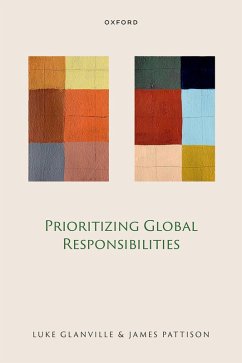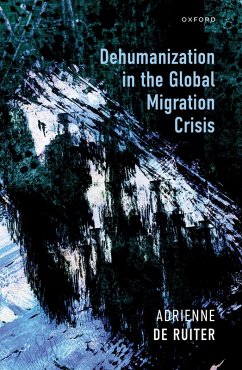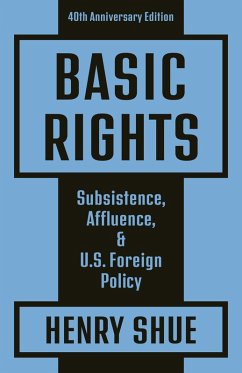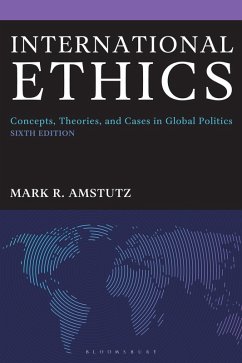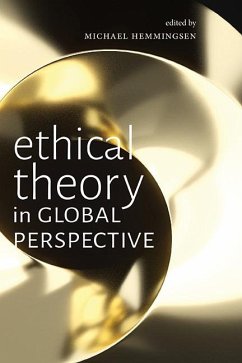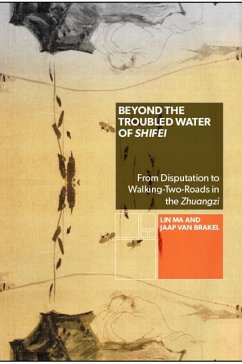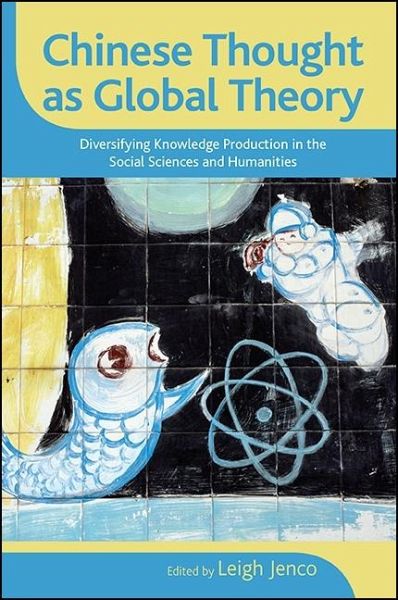
Chinese Thought as Global Theory (eBook, ePUB)
Diversifying Knowledge Production in the Social Sciences and Humanities
Redaktion: Jenco, Leigh

PAYBACK Punkte
13 °P sammeln!
Using Chinese thought, explores how non-Western thought can structure generally applicable social and political theory.With a particular focus on Chinese thought, this volume explores how, and under what conditions, so-called "non-Western" traditions of thought can structure generally applicable social and political theory. Reversing the usual comparison between "local" Chinese application and "universal" theory, the work demonstrates how Chinese experiences and ideas offer systematic insight into shared social and political dilemmas. Contributors discuss how medieval Chinese understandings of...
Using Chinese thought, explores how non-Western thought can structure generally applicable social and political theory.
With a particular focus on Chinese thought, this volume explores how, and under what conditions, so-called "non-Western" traditions of thought can structure generally applicable social and political theory. Reversing the usual comparison between "local" Chinese application and "universal" theory, the work demonstrates how Chinese experiences and ideas offer systematic insight into shared social and political dilemmas. Contributors discuss how medieval Chinese understandings of causal heterogeneity can relieve impasses within contemporary historiography, how current economic and social conditions in China respond proactively to the future configuration of world markets, and how hybrid modes of cross-cultural engagement offer new foundations for the enterprise of learning from cultural others. Each chapter works from Chinese perspectives to theorize the location of knowledge, its conditions of production, and the modes through which its content or adequacy is legitimated, challenged, and sustained. Rather than reproducing Eurocentric knowledge production in Chinese form, the mobilization of Chinese thought as a generally applicable body of theory actually breaks down clear boundaries between Chinese and non-Chinese thought.
With a particular focus on Chinese thought, this volume explores how, and under what conditions, so-called "non-Western" traditions of thought can structure generally applicable social and political theory. Reversing the usual comparison between "local" Chinese application and "universal" theory, the work demonstrates how Chinese experiences and ideas offer systematic insight into shared social and political dilemmas. Contributors discuss how medieval Chinese understandings of causal heterogeneity can relieve impasses within contemporary historiography, how current economic and social conditions in China respond proactively to the future configuration of world markets, and how hybrid modes of cross-cultural engagement offer new foundations for the enterprise of learning from cultural others. Each chapter works from Chinese perspectives to theorize the location of knowledge, its conditions of production, and the modes through which its content or adequacy is legitimated, challenged, and sustained. Rather than reproducing Eurocentric knowledge production in Chinese form, the mobilization of Chinese thought as a generally applicable body of theory actually breaks down clear boundaries between Chinese and non-Chinese thought.
Dieser Download kann aus rechtlichen Gründen nur mit Rechnungsadresse in A, D ausgeliefert werden.





